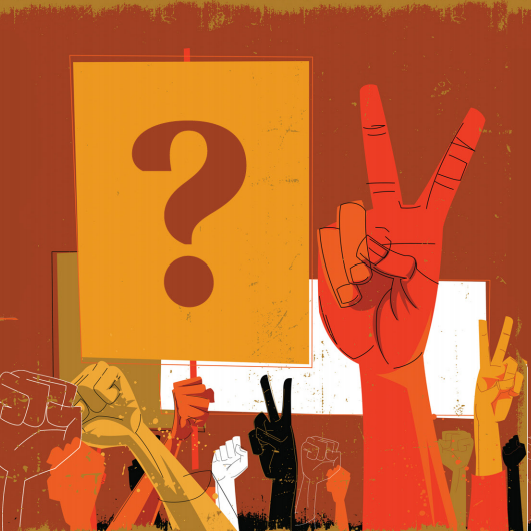Will the party ever win government again?
Labour’s pains
Will the party ever win government again?

Sleaze, cronyism and lies, rising gas prices with forecasts that the reserve stock could actually run out, empty shelves in supermarkets, long queues for petrol and fights on the forecourts, a hastily-cobbled together Brexit deal hailed by the prime minister as “great” being desperately renegotiated, savage cuts in social benefits, increased taxes, an MPs’ report slamming the government for its handling of the Covid pandemic, the growing fear that “Christmas might have to be cancelled”– any combination of two or more of the above would normally be expected to be the final nail in a government’s coffin, with calls for a general election ringing around the Commons and dominating the headlines. But not for this government. No, not even now, in the wake of the latest sleaze scandal, the Owen Patterson affair, has Labour managed to know the Tories off their perch. Some claim it’s partly the fabled “Boris effect”, the “Oh, I know he’s not
great and he tells lies, but at least he makes me laugh. And we all need a good laugh these days, don’t we?” Do we? Perhaps. But few Labour MPs and party members are laughing because at present there is little sign of the official Opposition mounting a serious challenge at the next general election, whenever Johnson decides to call it.
So what’s gone wrong with Labour? Why is the traditional party of the working people, who probably make up a sizable majority of the British population, no longer an attractive electoral proposition? Most in the party, from MPs to members grafting for votes out on the streets, know that winning back previously lifelong Labour voters or appealing to those disillusioned by unfulfilled Tory promises remains an uphill struggle. Many former Labour voters live in constituencies on the northern side of the so-called “Red Wall” demolished by the Tories at the last election. The people felt let down by Labour, arguably with considerable justification. Perhaps many feel it is too soon to rebuild that red wall, thinking they have to give the Tories more of a chance, having given Labour its chance for generations. The machinations within Labour do not help either, with mistrust and manoeuvring on all sides. The party chose to dump Jeremy Corbyn, a leader considered by many to be too far to the left to ever convince a majority in a general election. His replacement, Sir Keir Starmer, is already thought by a large proportion of the membership to be too far to the right – a bit like a left of centre Tory. And judging by the polls, that’s not what potential Labour voters want. Most appear to want a genuinely left of centre, socialist party, with an electable socialist leader, and for many, right now Starmer doesn’t even sound like a socialist. It’s been a long time since the last Labour government, but if they are to regain power there must surely be compromise – with a left, but not too far left, united front. Without that, it appears the Boris effect might linger for some time yet.


Sarah’s vigil touches a nerve
Your email address will not be published. The views expressed in the comments below are not those of Perspective. We encourage healthy debate, but racist, misogynistic, homophobic and other types of hateful comments will not be published.




